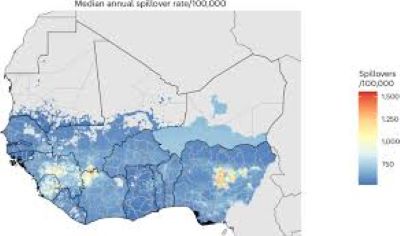Ahead of the ECOWAS Lassa Fever International Conference 2025 (ELFIC2025), public health experts have called on African governments to adopt innovative financing models to support health research and vaccine development.
The call was made during a preparatory webinar held on Wednesday, titled “Financing the Future: Integrating Vaccine R&D Preparedness into Sustainable Health Policy”, moderated by Ms. Oyeronke Oyebanji, Head of Lassa Engagement at CEPI.
ELFIC2025, scheduled for September 8–11 in Abidjan under the theme “Beyond Borders: Strengthening Regional Cooperation to Combat Lassa Fever and Emerging Infectious Diseases,” seeks to reaffirm regional commitment, mobilise political will, and drive collective action against Lassa fever and other emerging infectious diseases.
Experts warned that Africa’s heavy reliance on external donors undermines epidemic preparedness, stressing the need for locally tailored financing mechanisms combining government investment, philanthropy, and private sector participation to sustain research and development (R&D).
Prof. Nicaise Ndembi, Deputy Director General of the International Vaccine Institute (IVI) Africa Office and Head of Mission in Rwanda, cited South Korea’s model where governments guarantee 50% of funding for promising R&D projects, with additional contributions from foundations like the Gates Foundation and other domestic sources.
“Africa cannot retain research financing solely within the line of external sources. We need to customize models that suit our local context,” Ndembi said. He added that such frameworks would not only strengthen epidemic preparedness for Lassa fever, chikungunya, and dengue, but also stimulate innovation and job creation in Africa’s bio-industry sector.
He further noted that despite repeated commitments to invest at least 1% of GDP in research, most African countries fall short, leaving critical R&D initiatives underfunded. “The continent must move from donor dependency to a value-driven bio-industry ecosystem that creates jobs, supports local manufacturing, and ensures sustainability,” he stressed.
Dr. Pétronille Zengbé, Director-General of Research and Innovation at Côte d’Ivoire’s Ministry of Higher Education and Scientific Research, highlighted competing health priorities in West Africa—including maternal health, nutrition, and recurrent outbreaks—that often divert resources away from long-term vaccine R&D.
She proposed an innovative domestic financing model that allocates a small percentage of revenue from agricultural exports such as coffee and cocoa to fund health research, linking economic productivity to scientific reinvestment.
Zengbé also emphasized the need for inter-epidemic funding, urging Africa to save and allocate resources during calm periods between outbreaks. “Political leadership, supported by regional bodies like the Organisation Africaine de la Santé (OAS), is crucial to mobilise local funds and implement sustainable R&D solutions,’’ she said.
Dr. Kwasi Nyarko cited the MenAfriVac success story, developed with just $70 million—far below the usual $500 million—through collaborative partnerships and strategic planning. He suggested the model could guide Lassa fever vaccine development, emphasising blended financing, collaboration, and early market engagement.
“Doing research and development is more important to us in Africa than to the West, because we don’t have opportunities to make mistakes. We must make informed decisions and that comes from research,” Nyarko said. He urged leaders to invest in researchers, universities, and innovation ecosystems during “quiet times” between crises.
Nigeria’s Coordinating Minister of Health and Social Welfare, Prof. Muhammad Ali Pate, is expected to participate as special guest at ELFIC2025. Other key participants include Dr. Maria Van Kerkhove of WHO, Dr. Amadou Sall of CEPI, Dr. Sita Kroman Savane of Côte d’Ivoire’s One Health Platform, and Dr. Abdou Salam Gueye, WHO Africa Regional Emergency Director.
Experts such as Prof. Oyewale Tomori and other regional specialists will also present findings on viral transmission, community interventions, and long-term containment strategies.
Lassa fever affects between 100,000 and 300,000 people annually in West Africa, with Nigeria, Benin, Guinea, Liberia, Mali, and Sierra Leone most affected—particularly pregnant women and healthcare workers.
Organisers of ELFIC2025 stressed the importance of a One Health approach, building on lessons from the first ELFIC in Abuja, and emphasised collaboration, innovation, and preparedness as key to strengthening ECOWAS’s collective capacity to prevent and respond to epidemics.
The five-day event will bring together ministers, researchers, and global experts to mobilise resources, advance sustainable solutions, and protect Africa against Lassa fever and other viral haemorrhagic fevers that threaten the region’s health security.


